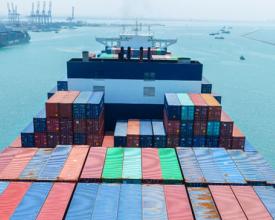DHA eNews – Department Of Commerce Investigates Hardwood Plywood Trade
Activity typically slows down in the summer as temperatures rise and people go on vacation. This year may be different, as the hardwood plywood industry filed important trade petitions, the Trump administration continues to work on a national security review of wood products, and the House, Senate, and White House work to head off a big tax increase and reduce spending. The hardwood plywood petitions took a large step forward recently when the U.S. Department of Commerce agreed to initiate investigations, beginning with antidumping margins as high as 504% for China and into numerous subsidy programs for each country.
The Senate is also making progress on the tax and spending bill with business provisions designed to help the U.S. economy grow. These include permanently allowing businesses to fully deduct investment costs and increasing estate tax exemptions.
If you have questions or comments, contact me. I look forward to hearing from you.

Keith A. Christman, President

On June 12, the U.S. Department of Commerce initiated antidumping and countervailing duty investigations into hardwood and decorative plywood imported to the U.S. from China, Indonesia, and Vietnam. Importantly, Commerce rejected importers' request to extend the deadline and poll the industry to determine whether the Coalition for Fair Trade in Hardwood Plywood had standing to bring the case.
Commerce initiated the investigations based on alleged antidumping duty margins of 504% for China, 85% for Indonesia, and 138–152% for Vietnam. Commerce also began investigations into nearly all subsidy programs named in the Coalition's petition, a total of 33 subsidy programs in China, 12 in Indonesia, and 26 in Vietnam.
The Senate Finance Committee has unveiled its part of the budget reconciliation bill. Key provisions include making the following changes permanent: businesses' ability to immediately expense 100% of capital investment, the business research and development credit, the 20% deduction for pass-through entities, and the increase in estate and gift tax and generation-skipping transfer tax exemptions to $15 million. Congress's goal is to pass the bill before the July 4 recess.
As of June 25, the Federal Motor Carrier Safety Administration (FMCSA) will enforce the requirement that commercial drivers be able to read and speak English. Changes include mandatory roadside English assessments. Drivers who cannot converse or read road signs will be immediately prohibited from driving. FMCSA will review the policy of issuing commercial driver's licenses to nonresidents.
The Trump administration has directed the Departments of Agriculture and the Interior to consolidate federal wildfire programs within 90 days. The order emphasized streamlined coordination, expanded use of AI and satellite data, and regulatory relief for prescribed burning and use of woody biomass. Notably, the executive order reinforces active forest management as a wildfire mitigation tool.
The proposed FY 2026 budget for the U.S. Forest Service will cut spending by 65%. The deep cuts include reallocation of wildland fire management funds to the Department of the Interior. Funding for forest products remains intact, ensuring continued support for timber sales.
U.S. imports of hardwood plywood are still up by 13% in volume year-to-date. This follows a surge in March, followed by a drop of 35% in April to the lowest level of the year. April imports of 226,202 cubic meters were 6% lower than last April.
U.S. imports of wooden furniture have increased by 4% year-to-date. In April, exports from Vietnam and Indonesia grew by about 5%, while U.S. imports fell by 1% due to lower volumes from Canada, Mexico, and China. U.S. imports in April totaled $1.7 billion, 8% higher than last April.
The U.S. and European Union have been working to resolve numerous nontariff trade issues, from the EU Deforestation Regulation (EUDR) to how U.S. tech companies in Europe will be treated. While tariff policy remains unclear, the draft text specifies that the EU will delay implementation of the EUDR for one year.
Jeff Jackson, CEO of Cabinetworks Group, talked about how the company maintains a product pipeline focused on market changes, works with customers to create affordable purchase strategies that reduce costs on both sides, invests in automation to maximize labor efficiency, and improves staff development programs.
A new analysis has quantified the U.S. timber harvest and supply dynamics and found that rapid growth in South-Central forests has made private reforestation profitable, although buying habits stay relatively constant regardless of timber prices. That said, when the price of timber rises by even 1%, research showed that private landowners are more likely to plant new trees.
A new study documented the economic impact of the skilled labor shortage on the residential construction industry. The cost of the shortage adds up to billions of dollars each year and tens of thousands of homes that cannot be built.
With the headline, “We set a big chunk of California wilderness on fire. You’re welcome,” the LA Times publicly promoted the benefit of prescribed burns. In 2018, California set a goal to burn hundreds of thousands of acres of wilderness each year. This year, the goal is to deliberately burn at least 400,000 acres.
Unprecedented cuts to U.S. Forest Service staffing mean that vast stretches of Idaho's Sawtooth and Cecil D. Andrus-White Clouds wilderness areas will be less monitored this summer. Several nonprofits have ramped up their volunteer and trail crews to fill in.
What is a "Champion Tree," and who decides which individual tree is named the champion?





